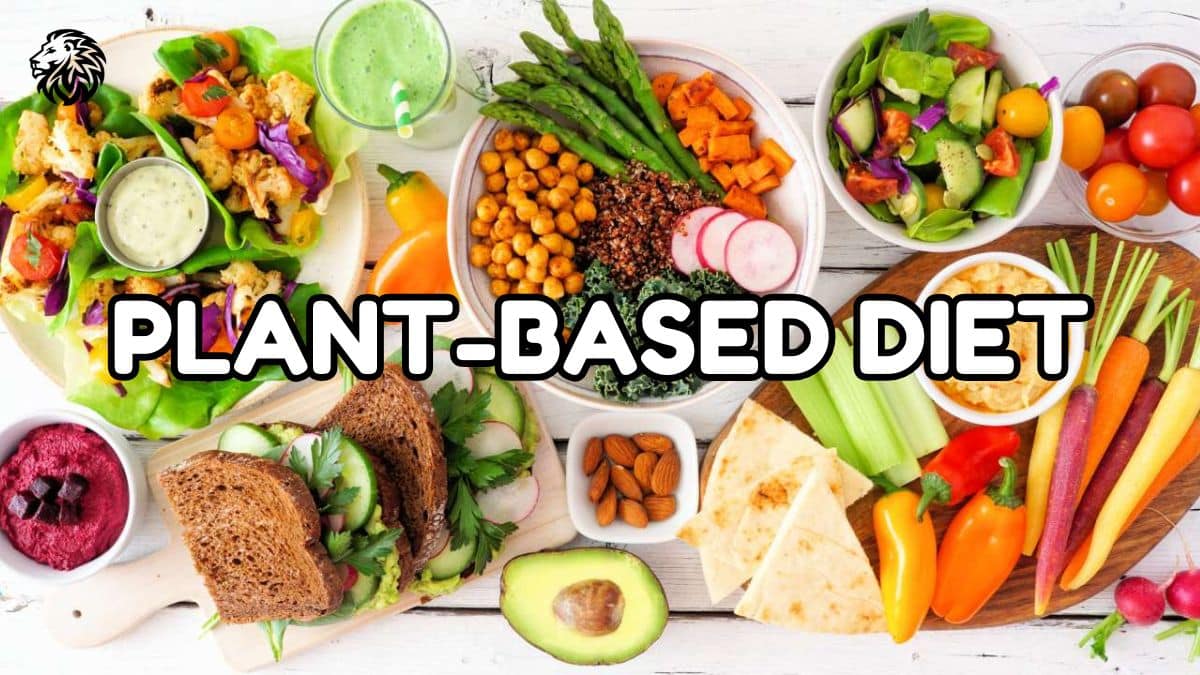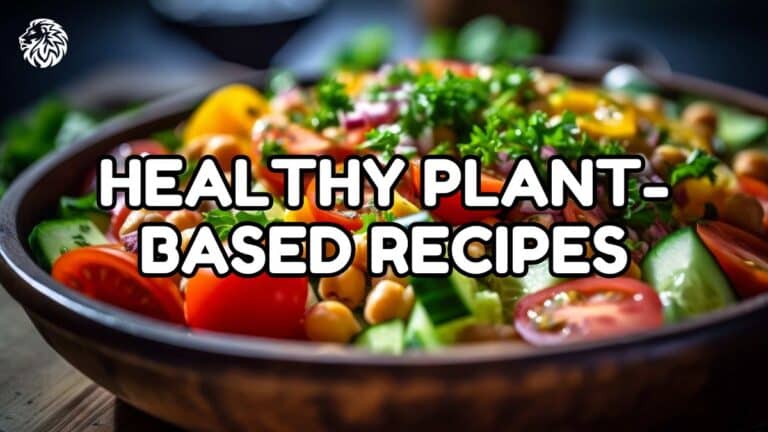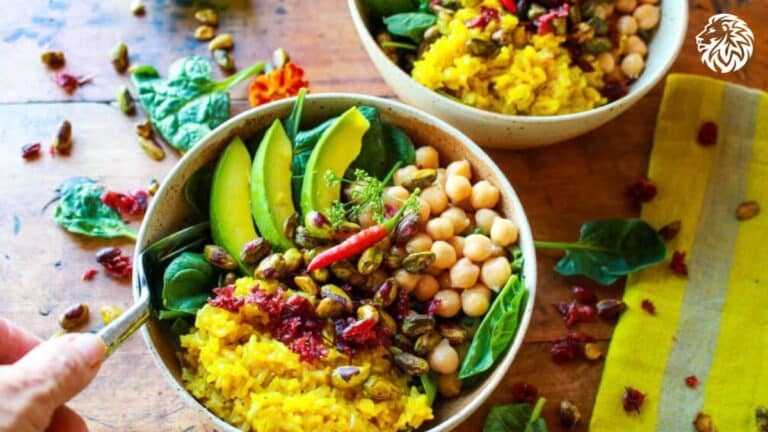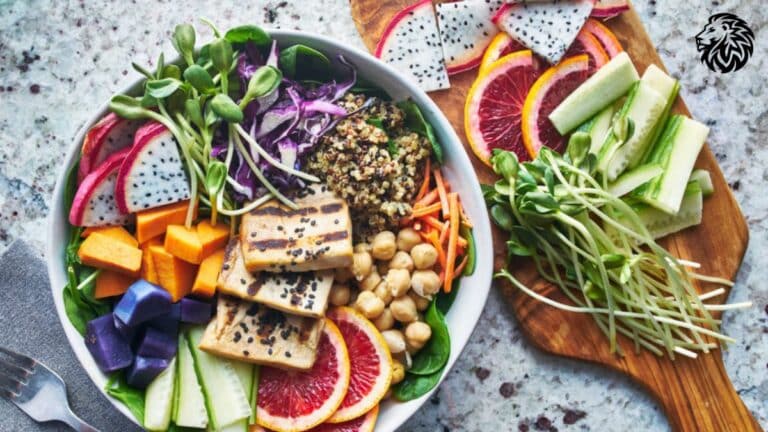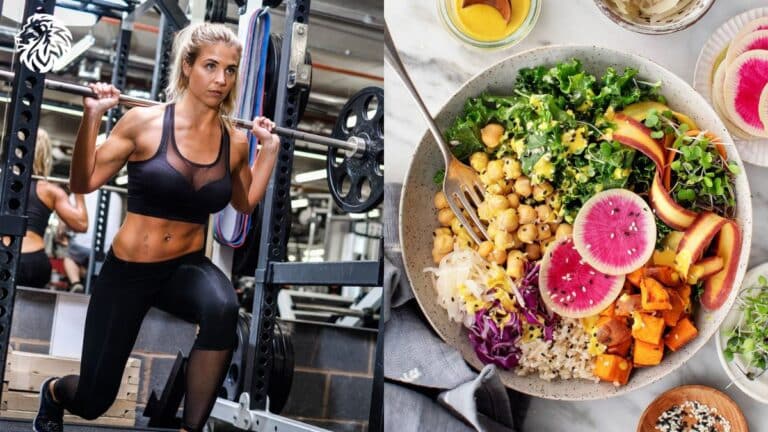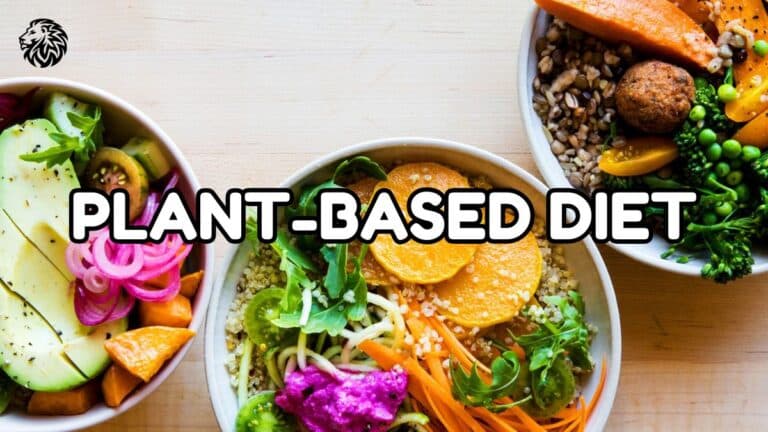Benefits of a Plant-Based Diet
Switching to a plant-based diet might just be the ticket to boosting both your health and the planet. Let’s have a chat about why munching on more greens could be a win-win.
Health Benefits of Plant-Based Eating
People who dig plant-based diets often rave about the health perks, especially if shedding some pounds is on your to-do list. According to Harvard Health Publishing, eating this way can help fend off heart disease, diabetes, and certain types of cancer like colon and breast. Plus, it might just put a spring in your step from a mental and physical standpoint.
Key Health Benefits:
- Heart Health: Keeps the heartaches away by cutting down heart disease risk.
- Diabetes Prevention: Keeps Type 2 diabetes at bay (Forks Over Knives).
- Weight Management: If you’re on the weight-loss train, these diets might help you reach your stop. They’re packed with fiber and low in the bad fats, so no surprise that people in various studies shed some pounds (Forks Over Knives).
- Reduced Body Fat: Smaller waists and less body fat to worry about (Eating Well).
Environmental Impact of Plant-Based Diets
Jumping on the plant-based bandwagon doesn’t just make your body happy—it gives Mother Earth a high five too. Eating less meat steers us towards a kinder environmental impact. Nutrients backs this up, pointing out the perks for weight control, heart health, diabetes, and keeping our planet in better shape.
Environmental Benefits:
- Lower Greenhouse Gas Emissions: Less meat equals fewer greenhouse gases.
- Conservation of Resources: It takes less water and land to grow plants than to raise animals for food.
- Reduction in Pollution: Cutting down on ag runoff and the meds that tag along into our water systems.
Rolling a plant-based diet into your everyday life might just be the shake-up your health and well-being need. Curious about starting? We’ve got some handy tips on how to start a plant-based diet. With plant-based options growing at the local grocery store, tailoring this lifestyle to your taste buds is easier than ever.
| Benefit Category | Plant-Based Diet Impact |
|---|---|
| Heart Health | Shushes heart disease |
| Weight Management | Keeps pounds off and tames body fat |
| Diabetes Prevention | Dims diabetes risk and aids control |
| Environmental Impact | Cools down emissions, saves resources, cuts pollution |
For more spin on the health benefits and environmental impact of plant-based living, check out what else we’ve penned.
Getting Started with a Plant-Based Diet
Thinking about trying a plant-based diet to shed some pounds? You’re not alone! Lots of folks are making this switch and loving the perks. Let’s chat about what a plant-based diet is all about, how it stands apart from a vegetarian diet, and how you can sneak more plant goodness into your meals.
What is a Plant-Based Diet?
At its core, a plant-based diet leans heavily into goodies growing from the earth. This means you’re loading up on fruits, veggies, nuts, seeds, oils, whole grains, and legumes. Going plant-based doesn’t mean you’re ditching all things animal. Rather, you’re choosing more plant goodies over time. The big aim? Nosh on foods packed with nutrients that work wonders for your ticker and waistline.
Difference Between Plant-Based and Vegetarian Diets
It’s easy to mix up plant-based, vegetarian, and vegan diets. But hey, they’re not the same! Here’s a quick look:
| Diet Type | Lowdown |
|---|---|
| Plant-Based Diet | Sways toward plant eats but doesn’t shun small bites of animal products. |
| Vegetarian Diet | Cuts out meat, fish, and poultry but keeps dairy and eggs. |
| Vegan Diet | Goes hardline against all animal stuff, embracing no dairy, eggs, or even honey. |
Choosing plant-based doesn’t mean you’re kicking meat to the curb entirely. You might just pair it down, focusing on more veggies instead. This little flexibility often helps people stick with a plant-based lifestyle.
Incorporating Plant-Based Foods
Jumping to a plant-based lifestyle can actually be a fun and tasty ride. Here’s how to ease in:
- Take Baby Steps: Start by tossing a few plant-heavy meals into your week. No need to dive in headlong.
- Play with New Flavors: Try out fruits, veggies, grains, and legumes you haven’t sampled before.
- Plan Ahead: Use guides like plant-based meal planning to keep your meals balanced and yum.
- Mix Things Up: Blend different plant proteins like beans, lentils, tofu, and quinoa to meet your nutrition goals (Eating Well).
- Keep Learning: Stay savvy on essential nutrients in a plant-based diet to ward off any nutrition gaps.
Got you a handy table to kickstart your plant-based munchies:
| Meal | Plant-Based Munch Ideas |
|---|---|
| Breakfast | Oatmeal loaded with fresh berries and almonds |
| Lunch | Quinoa salad with chickpeas, avocado, and greens |
| Dinner | Stir-fry with tofu, broccoli, peppers, and brown rice |
| Snacks | Carrot sticks with hummus, mixed nuts |
Remember, when you diversify your veggie-packed eats, you’re more likely to stay nutrient-rich, all while keeping your plate exciting and filling.
By catching onto the basics and slowly welcoming more plant choices into your daily eats, you’ll find yourself reaping the benefits of a plant-based scene. For more personalized tips, dive into our article on how to kickstart a plant-based lifestyle for more insider know-how and strategies. Happy munching!
Nutritional Considerations
Essential Nutrients in a Plant-Based Diet
A plant-based diet kicks in all the goodies your body craves for staying healthy—think proteins, fats, carbs, vitamins, and minerals. Packed with fiber and phytonutrients, this type of diet is like a salad party for your insides (Harvard Health Publishing).
You’ve gotta make sure you’re not skimping on these key nutrients:
| Nutrient | Sources | What It Does | Tips |
|---|---|---|---|
| Protein | Beans, lentils, tofu, tempeh | Repairs muscle and helps ’em grow! | Aim for 50g daily or 0.8g per kg of your body weight (Mayo Clinic Press) |
| Vitamin B12 | Fortified foods, supplements | Keeps your blood cells and nerves happy | Mostly animal sources—supplement might be your BFF (Eating Well) |
| Iron | Spinach, lentils, chickpeas | Moves oxygen through your blood | Team it up with vitamin C-rich foods for a boost! |
| Calcium | Broccoli, fortified plant milk | Bone strong like bull | Stay on top of this if you’re off dairy (Nutrients) |
| Omega-3 Fatty Acids | Flaxseeds, walnuts, chia seeds | Hearts and brains love this stuff | ALA’s nice, but it doesn’t easily become the other omega-3s (DHA/EPA) |
Eating a smorgasbord of plant-based foods can tackle most of your nutrient needs. But if you’re going full-on vegan, topping up with B12, D, and omega-3 supplements might be a smart move.
Protein Sources in Plant-Based Diets
Worried about getting enough protein when ditching meat? You’re not alone! Adults should chow down about 50 grams of protein daily (Mayo Clinic Press). Check out these plant-powered eats:
- Beans and Lentils: Fiber and protein-packed. Toss ’em in salads, soups, or stews.
- Tofu and Tempeh: Super versatile and protein-rich—perfect for stir-fries or as a meat stand-in.
- Nuts and Seeds: Healthy fats, solid protein. Snack it or sprinkle on everything.
- Quinoa: Fan-fave complete protein, fab for salads or subbing for rice.
- Peas: Protein-rich pals good for soups and curries.
| Food | Protein (g per serving) |
|---|---|
| Lentils (1 cup cooked) | 18 |
| Chickpeas (1 cup cooked) | 14.5 |
| Tofu (1/2 cup) | 10 |
| Tempeh (1/2 cup) | 15 |
| Quinoa (1 cup cooked) | 8 |
| Almonds (1/4 cup) | 7 |
| Chia Seeds (2 tbsp) | 4 |
Use this lineup to mix things up in your meals, and your protein goals will be in the bag. For even more ideas, hit up our guide on plant-based protein sources.
Mixing these foods into your daily eats, along with the must-have nutrients, can make flipping to a plant-based life smooth and oh-so-satisfying.
Want more on meal planning? Check out our plant-based meal planning guide.
Transitioning to a Plant-Based Diet
Ditching the meat and going green can really spice things up at the dinner table while melting those extra pounds and giving your health a nudge in the right direction. Let’s make sure the shift is as smooth as a well-blended smoothie with these tips and tricks.
Tips for a Successful Transition
- Take It Easy: No need to go full “vegan” overnight. Start slow by adding a little more greenery to your plate. Try one plant-based meal a day or have certain days when meat’s off the menu.
- Pantry Power: Arm your pantry with the plant-based dream team: beans, lentils, grains, nuts, seeds, and your favorite plant-based milk. That way, you’re always ready for a veggie feast.
- Learn the Basics: Do some homework on plant-based nutrition and the must-have nutrients to keep your body fueled and balanced. It’s all about keeping the body happy.
- Meal Mapping: Avoid those “what’s for dinner?” headaches. Look for plant-based meal planning guides or cookbooks to keep your meals diverse and exciting.
- Get Cookin’: Dive into a world of easy plant-based recipes. Mess around in the kitchen until you find what tickles your taste buds. A little kitchen experimentation never hurt anyone.
- Drink Up: Water’s your best bud, especially when fiber’s on the menu. Keep a bottle handy and sip away.
- Buddy Up: There’s strength in numbers. Find online friends or local groups that are all about the plant life. Swap tips, share stories, and keep each other going strong.
Meal Planning for Beginners
Meal planning is your secret weapon. When planned right, each meatless meal will keep you nourished and looking forward to the next one. Here’s a starter pack of ideas:
| Meal Type | Example Meals |
|---|---|
| Breakfast | Oatmeal with fresh fruits and nuts |
| Smoothie with spinach, banana, and plant-based milk | |
| Lunch | Quinoa salad with mixed veggies and a lemon vinaigrette |
| Chickpea-avocado wrap with a side of fruit | |
| Dinner | Lentil soup with whole grain bread |
| Stir-fried tofu with mixed vegetables and brown rice | |
| Snacks | Hummus with raw veggies |
| Apple slices with almond butter |
Nutritional Focus
- Protein Punch: Bring in the plant-based muscle—beans, lentils, tofu, tempeh, and quinoa—to keep your protein levels on point.
- Fiber Frenzy: Pack in the fruits, veggies, legumes, and whole grains. They keep you full and your digestion rolling along smoothly.
- Fat Facts: Don’t forget the good fats—avocados, nuts, seeds, and a dash of olive oil are your friends.
- Vitamins Galore: Mix up those colorful fruits and veggies for a vitamin and mineral ride that your body will thank you for.
Newbies, don’t worry—start by combining familiar foods with new plant-based magic. Resources like the best plant-based cookbooks and vegan meal prep ideas are there to help keep your meal game strong.
Follow these steps, and you’ll be a plant-based pro in no time, reaping all the tasty and healthy benefits. For more tips, check out our guide on how to start a plant-based diet and make this your new lifestyle groove.
Health Impacts of a Plant-Based Diet
Looking into a plant-based diet? It might just be your ticket to feeling healthier and more energetic, especially if you’re looking to shed a few pounds or keep illness at bay.
Weight Management Benefits
Switching to a plant-based diet could be just what you need for weight control. Some studies suggest this eating style can help trim down those extra pounds and revamp your body shape. Believe it or not, vegetarians can shed about a pound each week. And that’s without dragging yourself to the gym every day (PMC).
Chowing down on more veggies and fruits often means slimmer waistlines and a dip in body fat (Eating Well). You don’t have to go full-on vegan to see benefits—even cutting back a little on meat can do wonders. Curious about dropping pounds this way? Check out our piece on plant-based diet for weight loss.
| Aspect | What Changes? |
|---|---|
| Weekly Weight Loss | ~1 pound down |
| Waist Size | Shrinks |
| Body Fat | Decreases |
Disease Prevention and Management
Eating plant-based isn’t just about fitting into skinny jeans; it’s got big perks for dodging and dealing with diseases too. It can give your cholesterol levels a makeover (that’s a good thing!)—lowering total cholesterol and the not-so-great LDL kind, which in turn reduces your heart disease risk.
Veggie-heavy diets also seem to mean fewer heart problems compared to meat-heavy ones. These perks spread across to chronic diseases, too. Focusing your plate on plants can lead to fewer cases of Type 2 diabetes and even help those who already have it to see better results (Forks Over Knives).
Plus, go-to plant-based diets, like Mediterranean and vegetarian, might slash cancer risks and even keep your mind sharper and body peppier as you age (Harvard Health Publishing). For a deeper dive into the benefits, take a look at our article on plant-based diet benefits.
| Health Perks | What’s In It For You? |
|---|---|
| Heart Health | Risks go down |
| Type 2 Diabetes | Better control |
| Cancer Chances | Lowered |
| Mental & Physical Stats | Boosted |
By picking smart and eating a range of plant-based delights, you’re setting yourself up for feeling better inside and out. Want pointers on kicking off with this diet style? Pop over to our starter guide on how to start a plant-based diet.
Plant-Based Diet Trends
Rising Popularity of Plant-Based Diets
These days, folks are really getting into plant-based diets. Lots of people, especially anyone aiming to shed a few pounds, are choosing to give veggies more love on their plates and the reasons make sense. In the U.S. of A., those who’ve gone full vegan soared from about 4 million in 2014 to a whopping 19.6 million in 2017. What’s sparking this leap? A mix of health perks, saving the planet, and some ethical food choices.
People are also getting wiser about what makes a plant-based diet tick versus the vegetarian route. It’s like when you discover all the cool ways to mix up your meals with grains and greens while still indulging in awesome tastes.
Market Growth of Plant-Based Alternatives
The plant-based market? Oh boy, it’s been booming! Seems like everyone and their grandma is after healthier, kind-to-the-earth, and animal-friendly eats. The shift is real: The plant-based meat world is set to rock from USD 1.6 billion in 2019 to a predicted USD 3.5 billion by 2026 (PMC).
And don’t get me started on plant-based milks – they’ve been flying off shelves. From 2009 to 2015, these tasty drinks more than doubled in sales globally, hitting USD 21 billion (PMC). Meanwhile, plain old cow’s milk kind of took a hit, dropping from USD 19 billion in 2013 to less than USD 16 billion in 2018 (PMC).
In the U.S., plant-based yogurt is up by 55%, cheese by 43%, and creamer by 131% – that’s some jaw-dropping growth! Here’s the rundown:
| Product Type | Sales Growth (%) |
|---|---|
| Plant-Based Yogurts | 55 |
| Plant-Based Cheeses | 43 |
| Plant-Based Creamers | 131 |
All these figures just go to show that plant-based goodies are stealing the spotlight. When you jump into your plant-based diet for beginners, you’ll stumble upon a buffet of tasty, healthy options that boost your weight-loss fight and keep you feeling fab. For cooking inspo, be sure to try our easy plant-based recipes or swing by our plant-based meal planning guide.
